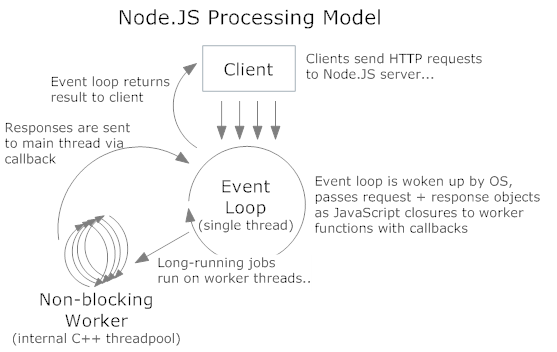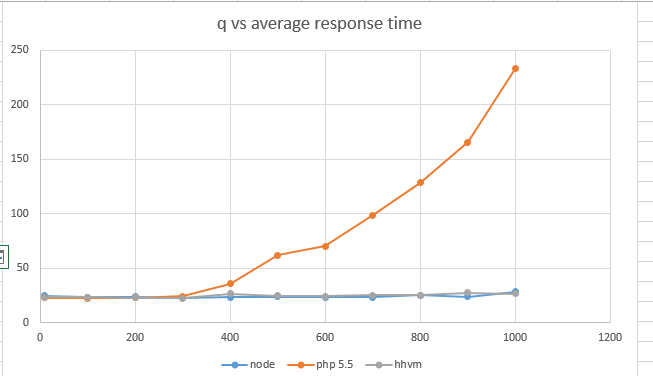Node.js
Node.js is a platform that’s built on Chrome’s V8 engine and relies on an event-driven, non-blocking I/O model, by employing callbacks. It’s built on Chrome’s JavaScript runtime, it promotes modularity and its single-threaded apps are written in JavaScript.
We have an expert team of 6 specialists with up to 3 years’ Node.js experience. They stay up-to-date with the latest developments and keep their knowledge fresh and relevant through periodic trainings. Their current work includes an online community portal and a chat software.
Our Node specialists typically rely on the following technology stack:
Frameworks:
- Express.js
- Sails.js with Waterline support
Database:
- MongoDB
- OrientDB
- MySQL
UI:
- Angular.js
- Knockout.js
Node works great for several types of software development projects, but to make sure if it’s the right choice for your particular needs, our consultants will discuss with you your technical and business requirements and determine if Node.js is indeed the best option for your project or recommend the best alternative. Below you have a few examples of what this platform works best for.
What to build on Node:
- Light-weight REST / JSON APIs
- Real-time applications – data-intensive web apps, social networking apps, instant messaging networks, chat software, real-time tracking dashboards etc.
- Single page applications
- Highly event-driven applications
- Apps that need to handle thousands of connections and data streaming towards other systems
- Applications that ensure an intensive data exchange with the back-end
- Node.js mobile apps - using Node.js-compatible JavaScript API for mobile applications
- IoT devices – wearable technology, embedded devices and robotics

Image source:
Node.js benefits:
- It’s highly scalable, thanks to the asynchronous architecture, the event-driven processing and use of JavaScript
- It’s very fast: compared to other languages, apps written in Node require fewer lines of code, fewer files and can be built faster and with fewer people. Node.js apps are not only faster to build, but also faster to run, having much lower response times and processing more requests per second compared to most alternatives
- It supports IoT-specific communication systems, like MQTT, which is designed for fast status updates from small devices
- It has a high productivity and by using JavaScript, it allows developers to implement many features in a short time, to build a prototype rapidly, get feedback from users and iterate.
- It’s inexpensive to test and deploy using pay-as-you-grow services
- The code is written in one language, but can run on multiple platforms
- It provides the ability to design the client and server sides in a way that doesn't require flipping back and forth between multiple technologies, thanks to the tight coupling between client and server
- It ensures app reliability - lack of crashes or downtime errors from Node.js-based applications during hard loading and rush hours
- It’s compatible with many community driven open source packages, modules, libraries and extensions, and its market adoption rate is continually increasing
- It’s a perfect solution for implementing REST API Proxy while complying with all performance requirements, thanks to its easy to write API and interaction code, streaming support, monitoring possibilities and authentication support
- Because it operates on a single-thread, uses an event-driven and a non-blocking I/O approach, Node.js is basically always accepting requests because it’s not waiting for any read or write operations. That makes it lightweight and efficient to support hundreds of thousands of concurrent requests



